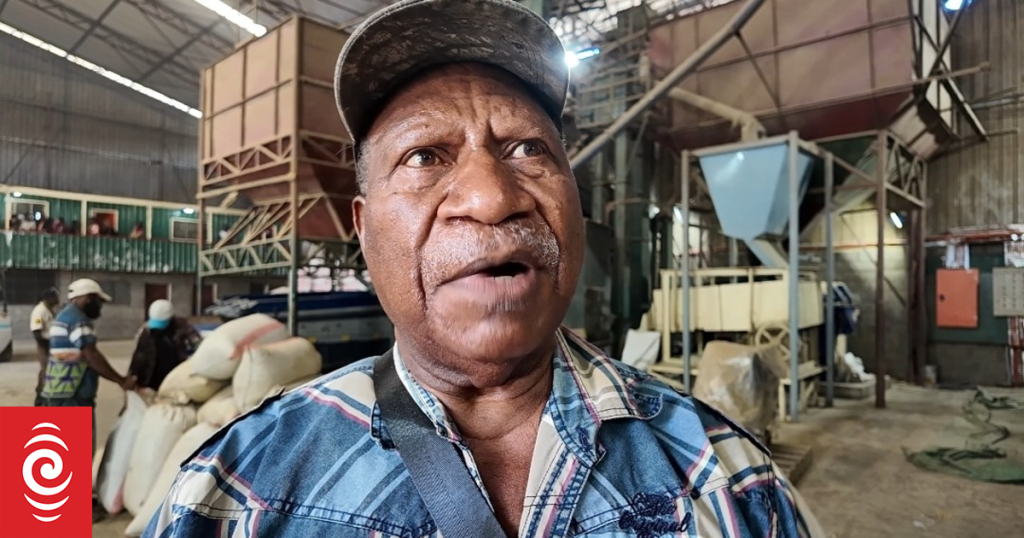The Coffee Industry in Papua New Guinea: Opportunities and Challenges
Photo: Scott Waide
For decades, coffee has been more than just a beverage in Papua New Guinea (PNG); it’s a vital part of the economy and the cultural fabric of rural communities. As international coffee prices soar, coffee farmers are at a unique crossroads. This article explores the emerging opportunities, persistent challenges, and the critical governmental interventions impacting the coffee industry in PNG.
The Surge in Coffee Prices: A Double-Edged Sword
Recent reports indicate an astonishing 70% rise in coffee prices in 2024, with an additional 18% hike in early 2025, according to Kina Bank. While these figures are promising for farmers—who often rely on coffee as their main source of income—they illuminate ongoing systemic issues that prevent many from fully benefiting.
Global Impact on Local Farmers
The spikes in international coffee prices can be attributed to adverse weather conditions affecting major coffee producers like Brazil and Vietnam, thereby creating a global coffee supply shortage. For many rural households in the highlands of PNG, this equates to improved financial security, better education access for children, and enhanced living standards.
Robert Solala, a coffee farmer from Nivi village in the Eastern Highlands, encapsulates this sentiment: "Coffee is everything. We pay for school fees. We pay for our cultural obligations." His experience is reflective of many farmers who find themselves in a paradox: while prices are high, they face overwhelming challenges.
Economic Growth Through Coffee Exports
As farmers spend their newfound income, they drive local economic booms, stimulating retail and wholesale trade. According to ANZ Research, PNG’s GDP is projected to grow by 4.7% in 2025 largely due to the success of coffee and other agricultural exports. This economic uplift can also help mitigate ongoing foreign currency issues faced by the nation.
However, the road to this prosperity is fraught with difficulties. Many communities in rural highlands are beset by poor infrastructure. For instance, farmers often carry 40-kilogram coffee bags over four hours to reach truck stops, illuminating the urgent need for better transport options.
Solala adds, "We contribute to the economy of the country. We make the money. But we’re not getting the help we need." This quote conveys the frustration of many farmers unable to capitalize fully on their contributions to the economy.
Government Initiatives: A Mixed Bag
The PNG government, in collaboration with international partners like the World Bank, is striving to improve the situation for coffee farmers through projects like the PNG Agriculture Commercialization and Diversification (PACD) Project. Managed by the Coffee Industry Corporation (CIC), this multi-million dollar initiative aims to bolster productivity and empower farmers.
Infrastructure Development as a Priority
Potaisa Hombunaka, the PACD’s project coordinator, asserts that poor roads represent the biggest barrier to achieving high export figures. He stresses the importance of understanding farmers’ realities, saying, "So-called experts who plan in air-conditioned offices in Port Moresby need to go to the villages and understand how people live." His insight underlines a critical disconnect in policymaking.
Past initiatives, such as the construction of "coffee roads," have proven effective in reducing transportation times. As the PACD continues to evolve, its focus has shifted towards enriching farmers’ participation in global trade, which is essential for their financial success.
Enhancing Farm Productivity and Community Revitalization
The PACD offers direct support to coffee farmers by distributing high-quality seedlings, farming tools, and essential infrastructure like training centers and storage facilities. Such resources are crucial in assisting farmers to improve coffee quality and yield.
In Goroka, the Las Malo coffee processing facility recently adopted high-tech innovations like electronic color sorters, enhancing production efficiency. Ken Dumudi, the owner, notes, "Since 2019, we’ve paid K13 million in taxes. We buy directly from farmers."
The Land Dispute Challenge
Despite the promising developments, land disputes remain a significant hurdle. Much of PNG’s coffee comes from smallholder farmers working on customary land, embroiled in long-standing land ownership issues. Dumudi emphasizes that his operations depend entirely on smallholders, illustrating the interconnected nature of land ownership and agricultural success.
Social Impact: Beyond Economics
Interestingly, coffee initiatives are playing a role in fostering social change. In areas historically affected by tribal conflicts, community-driven coffee projects are becoming instruments of peace. For example, the Kualga Women’s Development Association has utilized funding from the CIC-PACD Project to develop a nursery and wet bean factories, enhancing coffee production while mending social fractures.
The Road Ahead: Challenges and Opportunities
Despite optimistic pricing and governmental efforts, challenges remain. Pest management and declining yields from aging coffee trees pose ongoing risks. However, with sustained high prices and continued investment in essential infrastructure, the outlook for PNG coffee farmers is brighter than it has been in years.
Concluding Thoughts
In conclusion, while the current economic climate for PNG’s coffee farmers is promising, it is essential for the government and stakeholders to address persistent challenges. Infrastructure development, support for smallholder farmers, and resolution of land disputes must remain at the forefront of policy efforts. Only then can Papua New Guinea transform its coffee industry into a sustainable economic powerhouse that benefits farmers and communities alike.
For further information and updates on agricultural policies in Papua New Guinea, you can check out World Bank projects and the Coffee Industry Corporation for detailed insights.
By focusing on these critical areas, Papua New Guinea can not only enhance its coffee production but also uplift the rural communities that depend on farming for their livelihoods.






